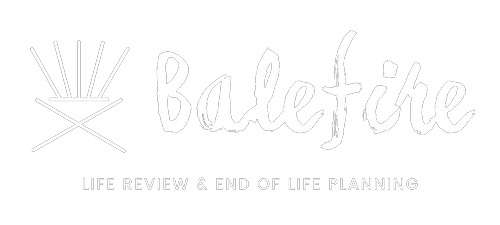Messy Life, Messy Death?
tldr: Work on fully accepting yourself as you are and develop compassion for others in order to approach death without fear of embarrassment.
What if I die and my house is still a mess?
I think about this all the time. I wonder, what will my loved ones think when they see I haven't dusted behind my toilet in weeks? Will they judge me when they see the neglected pile of clothes in the corner? What about my cluttered closets and complicated finances? All my messy and complicated life will be laid bare. For some, this will be their utmost embarrassment.
But what's embarrassment? Dictionary.com defines it as a feeling of self-consciousness, shame, or awkwardness. What positive functions do self-consciousness, shame, or awkwardness serve in our lives? Not much. Self-consciousness's undue awareness doesn't serve a purpose without a positive of functional intention, which then turns it into self-awareness or mindfulness. These can be very helpful and productive when applied with positive intention. Shame only serves to bring pain. Shame is something we often impose on others as their consequence instead of learning, communicating, and connecting. Lastly, awkwardness's focus on others or the self being difficult or hard to deal with tends to make us feel wrong for our mere existence. These feelings wrapped up in the embarrassment of your life laid bare have no place at end of life or during important life transitions.
When I speak with other millennials in the beginning stages of their proactive end of life planning, so many of them realize they haven't thought about this aspect of their planning yet -- who will come in and take out my garbage? Who will have to clean out my closet? Who will clean up my home and close all my accounts? Most skip over the inevitable potential of embarrassment in death.
They think, "I won't be here. It's not my problem anymore!"
Well, that's certainly true. That's also a conversation-ender, a connection-cutter. You and your loved ones deserve better. They deserve to know that you loved yourself and did the best you could throughout your life. You deserve to know that the people going through your things will love getting to know all about you in a new way and that they will respect your wishes and memory through the process.
So what can we do with this embarrassment? How can we prevent this horror or people seeing us for who we really are?
Take a moment to breathe a little.
You can feel where this is going, can't you?
There is no amount of preparing, cleaning, organizing, or performing you can do to get rid of your fear of embarrassment. You will have to learn to be okay with yourself, as you are, right now.
Now, what do we do with this? How do we accomplish confidence and peace at end of life?
This is where I remind you that preparing for end of life IS WHAT LIVING IS. If you want to have a "good death," you need to be an active participant in your current life. Whether you end up on your deathbed in a long-term hospice, on your family farm, in a hospital, on the side of a road, or in a war-torn country, it is still possible for you to have peace of mind. That peace of mind can come from basic preparations and conversations with your loved ones. It can also come from work on acceptance of yourself and compassion for others.
My wish for you is that you approach your everyday life and tasks with intention, that you learn to fully accept yourself for who you are in each moment, and that your compassion for yourself and others grows every day.
As for the techniques to accomplish this? This will look different for everyone. If you want to approach this work with the scope of your life in mind, you can hire a death worker like me, a mortality companion, to walk you through a Life Review to understand your values and how you’re living them out, day-to-day.



